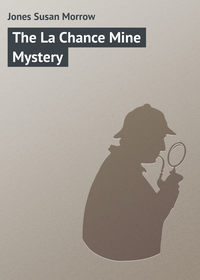 полная версия
полная версияA Girl of the North. A Story of London and Canada
“You are? I thought – ”
“You thought me broken-hearted. So I am; I am wretched – tired of waiting, of longing, and of thinking what a fool I have been. He loved me, and it is too late. I long for love until I feel nearly mad, so I am going to marry. I shall be bound, tied up, and there will be no escape, and so I must feel peaceful.”
“You will not.”
“Ah, but I shall. Why did I not go with him? Why did I not love him while I could?”
“Who are you going to marry?”
“A man who knows it all. I am not going to deceive him. He says the heart of a woman cannot remain in a man’s grave for ever. But.. when he is with me I see.. the other. It is ghastly.”
“So I should think, and it will be worse. Don’t do it, Sylvia. You will regret it always.”
“No, I think you are mistaken. Let us talk of Launa.”
That night Paul wrote to her. He waited with impatience for her answer.
When it came, she said she was leaving for Canada and the letter was posted at Liverpool.
CHAPTER XXIII
Launa’s first feeling was relief, relief – so intense, so endless, that she felt buoyant, joyful, secure. But after some days she felt shame. What had Hugh Wainbridge thought of her? What could a man think of a woman whom he could propose to wrong so terribly? And what had Paul thought of her? Why did he not come?
Why should she think he cared still? She had no reason to think so. Doubt, misery, and loneliness, became torturing demons; in action she saw the only relief possible, and then she remembered Canada, “Solitude,” the woods, the shore. Paul despised her, she was sure; she would go away, go home.
The penetrating depressing autumn mist was slowly making its way over the land, it was almost rain, it was so thick, and far more wetting. The river was shrouded in a white ghostly mantle. She thought of the keen air at “Solitude,” of the clear sky, and of the shore with the far-away landscape, mysterious and, always to her, enticing. And then of the storms, howling, fierce, and powerful, like the terrible force and presence of an unseen mighty power, the devastating Great Spirit of the North who, for five months of the year, reigns supreme, who is real, tangible, brutal, unlike the horrible slowness of this climate.
“Solitude” was empty, Launa cabled to the gardener’s wife who inhabited a lodge, and who once had been housekeeper.
When Paul got her letter, she and her maid were out on the Atlantic, rapidly going farther away.
Launa was beginning to forget the Wainbridge incident, though at first her anger had seemed unending.
The weather became very cold as they neared Halifax. The big blue harbour, with its white-capped waves and white-covered shores, was home. The drifting bits of ice were gaily rushing on, tossed by the waves, the tide, and the wash of the big steamer. The decks and rigging were covered with ice, the sea had swept the ship, and, after sweeping it, the frost demon bound everything in his cold arms. She wondered how she had existed so long in that grey land without sun. The sky looked higher and more deeply blue.
“Solitude” was quite ready for her, huge fires blazed everywhere, old servants had come back. She drove ten miles from the nearest station, how the sleigh runners creaked, and the bells rang clear, a big yellow moon was up before she arrived; everything was so strong, so intense, so cold.
“Solitude” was lonely. She spent the greater part of the days out of doors. She was young, and the horribleness of Mr. Wainbridge’s behaviour became dimmer. She had only been angry, how would she have felt if she had loved him?
After a week of driving and snowshoeing she got out her toboggan.
The land from “Solitude” to the Bay sloped down for about half a mile, and then the Bay was frozen, the ice covered with snow, and she could toboggan straight across it. The crust of the snow was very hard. The toboggan started slowly, then went faster, faster, little bits of crisp snow flew in her face, the air whistled past her as she rushed along, the pace became swifter, – it was glorious: the sun, the air, and the clear blue sky were life-giving as she tore on. The toboggan bounded over the rough blocks of ice on the edge of the Bay which were broken by the tide. On the flat stretch of ice it began to move more slowly and then stopped. It was splendid. She spent all the afternoon at it; the thermometer was ten below zero, but it was so still and sunny that she could not feel cold.
It was snowing hard and blowing from the north-east; the view from “Solitude” was dim, whirling snow hurled by the wind, little drifting eddies of snow curled round the top of the drifts already forming quickly.
Launa started on snowshoes. The wind knocked her about and she staggered before it. She waited in the shelter of the porch until the fury of the blast seemed to have swept past, then she went on again. The snow was loose, and the walking, even on snowshoes, very heavy. She struggled to the little post-office, though there was no need for this, for they would have sent up her letters; the one she wanted was not there. She wandered on in the storm to pass the time hoping to grow very tired. The road was gone, it had disappeared in a level plain of snow, only like black specks occasional stones showed up in the walls. The snow drifted and whirled, and the wind was so keen and cold, like knives, with a stinging burning sensation. The snow made its way under her big fur collar and chilled her neck and face though she was so hot.
Suddenly she saw a dark figure coming nearer. It was a man. “Good-night,” she said as they passed. She doubted if he could hear, the wind crashed by them, it roared over their heads and howled behind them.
The man turned, and with two steps towards her, said:
“Launa, darling!”
He put his arms round her, and then walked on her snowshoes, nearly knocking her over, and Launa lay in his arms; her feet were most uncomfortable, one snowshoe was on its side.
“Paul!” she gasped.
His thick blanket coat against her mouth prevented conversation.
“Come back to ‘Solitude,’ ” he said; “it is too cold and too stormy for you to be out.”
He took her hand, and they trudged on for the greater part of the way in silence; it was too windy to talk, and neither knew when the other spoke unless their heads were close together.
At “Solitude” Paul undid her snowshoes and his own, then they went into the hall, all bright with a huge fire and flowers. Paul put his arms round her and kissed her. She was covered with snow.
“I must go. Let me go, Paul; you will stay. There are things you can put on in the dressing-room; but I must get them for you. I want to tell you about him.”
“I don’t want to know anything. He was a beast; you are mine now. I am not wet, Launa; you have forgotten the snow is dry. Even Mrs. Grundy could not turn a man out on a dark night, with the thermometer at zero and a gale blowing.”
When she came down he was waiting. He came towards her. She loved him, he loved her; was there anything in the world she needed now?
He put his arms round her.
“You have forgiven me?” he said, and he kissed her.
“Paul, you won’t hate me?”
“Probably I shall. Tell me why?”
“Well, you know I do not like – much kissing.”
“I have observed that with regret, or rather I hear you say it with sorrow; for since I came I have kissed you several times and you – ”
“Yes,” she interrupted, “but do you not think we had better be careful? It might get – common, we might grow accustomed to it, and not – like it as much.”
Paul laughed.
“Oh, Launa!”
“Tell me how you got here?” she asked. They were sitting by the tea-table. “The roads are blocked, and it snowed all night as well as to-day.”
“Changing the subject rapidly was always one of your accomplishments. Kissing and roads – I see the connection to you.”
“Paul!”
“I started to drive,” he answered. “At last we stuck in a drift near Montague’s; so I came on snowshoes.”
“It was a dreadful tramp.”
“It was the best I ever had – with you at the end of it. I wonder if you will ever know? How soon will you marry me? I cannot stay at ‘Solitude,’ and fifteen miles is too far apart for you and me.”
“You never came back! You never wrote to me at ‘Shelton.’ I thought you did not care – that you despised me, and thought me a beast.”
“And you? You were going to marry someone else. I tried to stop you – ”
“I believe I was going to run away the day of the wedding,” she said. “Wasn’t it ghastly?”
“Awful,” he said briefly. “Sylvia has promised to marry the Member for Hackney. Did she write to you?”
“No. She will marry Lord Fairmouth? Ugh! how can she? Is it true?”
“You will marry me soon,” he said. “And we will go – where shall we go?”
“We shall stay here until the spring, and then go up to the North,” she answered. “I am glad we are ‘born Canadian.’ Aren’t you?”
And Paul kissed her.
THE END

